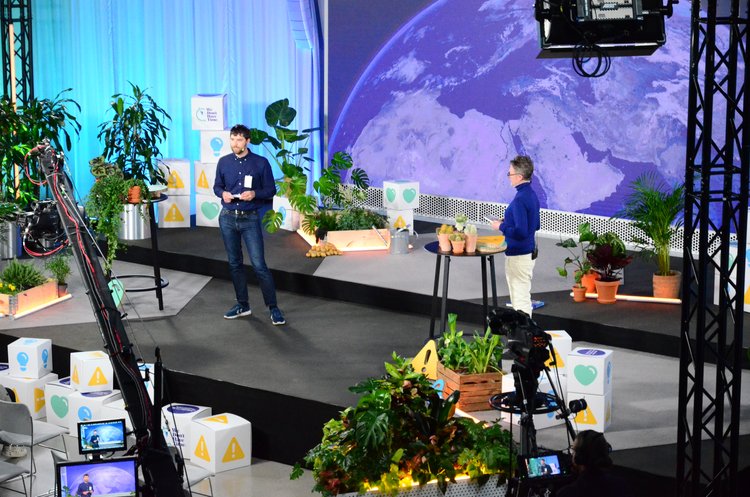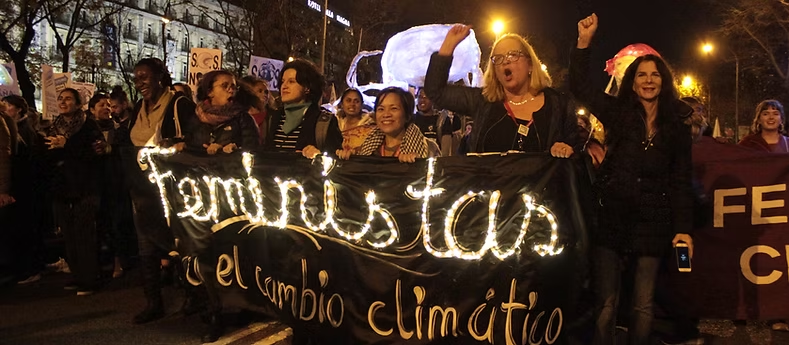On April 22nd, for Earth Day, Earth4All partnered with Exponential Roadmap, Ericsson, Terraformation and the Earth Day Network for The Exponential Climate Action Summit, a broadcast organised by We Don’t Have Time.
Earth4All contributors made several appearances throughout the 8 hours-long broadcast, which was viewed by 12.8 million people worldwide.
The message was clear: achieving wellbeing within the planetary boundaries is possible, but will take nothing less than five extraordinary turnarounds in the next decade: ending poverty, reducing inequalities, achieving gender equity, transitioning to clean energy and making the food systems healthy for people and planet. We can’t solve the climate crisis without solving the poverty and inequality crises, and vice versa. Findings of the Earth4All project will be published in September 2022.
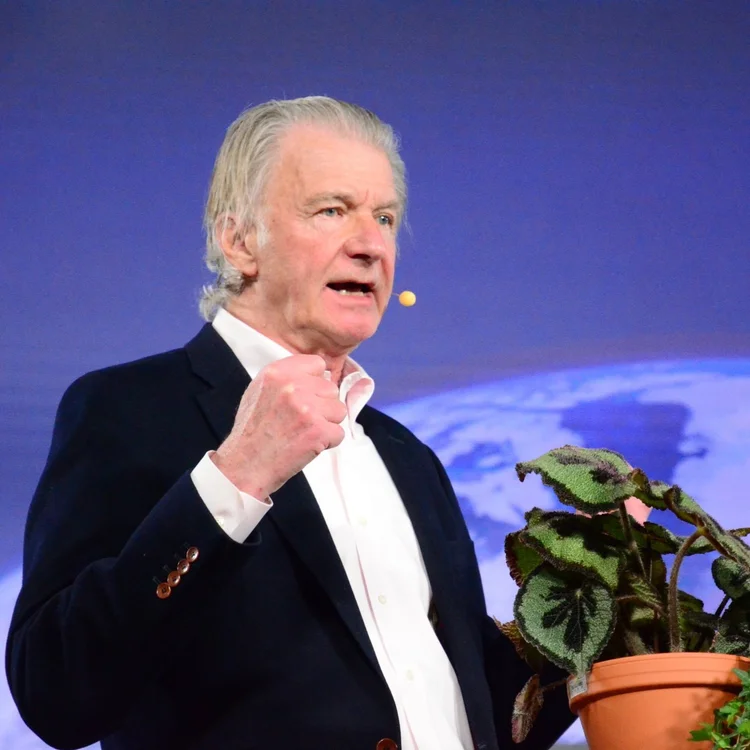
Asked to reflect on political action over the last fifty years, Anders Wijkman, member of the Earth4All Transformational Economics Commission, said:
“In 1972, the book The Limits to Growth was a wake-up call for the world. It sent a powerful message: ‘We cannot continue to grow material consumption decade after decade on a finite planet’. Unfortunately, governments weren’t listening. Governments must listen now”.
Earth4All, a large collaborative of scientists, economists, and advocates, has identified a set of actions needed to meet the wellbeing needs of everybody, without transgressing the planetary boundaries. Findings will be published in September. Contributors hope the book will create momentum to upgrade our economic system, sparking debates in our societies.
Looking ahead at the 50th anniversary of the Stockholm Earth Summit on 2-3 June this year, Anders warned:
“Governments will be meeting in Stockholm in a few weeks’ time. So far, we are losing the war. Even if we have taken steps in the right direction, all major indicators are still in the wrong direction – whether talking about climate, oceans, biodiversity loss. We have to speak truth to power.”
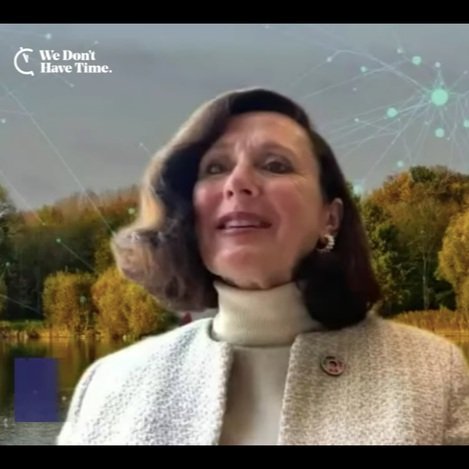
Later in the day, Sandrine Dixson-Declève, Co-President of The Club of Rome and one of the Earth4All Project Leaders, said:
Watch Sandrine Dixson-Declève’s speech
“It’s time to say enough is enough, to stand up to power and put in place the economic and financial systems that service people, planet and prosperity together. This is the decisive decade for act. 74% of people in G20 countries want transformation and want wellbeing economies. We need to shift from GDP growth that leaves the majority behind, to wellbeing economies that service planet, people and prosperity. But we need nothing less than five turnarounds: ending poverty, addressing inequality, reaching gender equity, transitioning to clean energy and making our food system healthy for people and planet. This systemic transformation requires collective action, by the world’s governments, citizens, by leaders and businesses, investors”.
The Earth4All project is bringing new findings and models to help world leaders to make the right decisions and put our societies on a safe track.
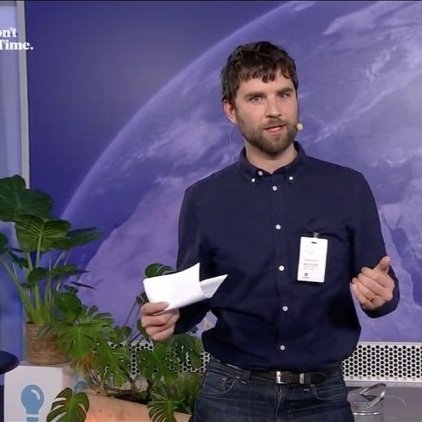
David Collste, a researcher at the Stockholm Resilience Centre’s planetary boundaries lab, one of the scientists modelling the systems dynamics science of Earth4All, presented some of the novelties of the model behind Earth4All – also to be published in September 2022: “We developed a systems dynamics model, which is a way to quantify systems thinking, where the relationship between the human world and the natural world is interlinked and visualised. The model doesn’t provide final answers or predictions, but is rather a tool to answer ‘what if?’ scenarios”. The model is allowing Earth4All to illustrate the impact of action or no-action on the 5 extraordinary turnarounds, in a world that is already undergoing massive inequality and climate crisis.
“The interrelations between humans and nature in the Anthropocene are so important that we cannot look at nature only, or societies only – they need to be looked at together, which is what we are doing in this modelling endeavour”.
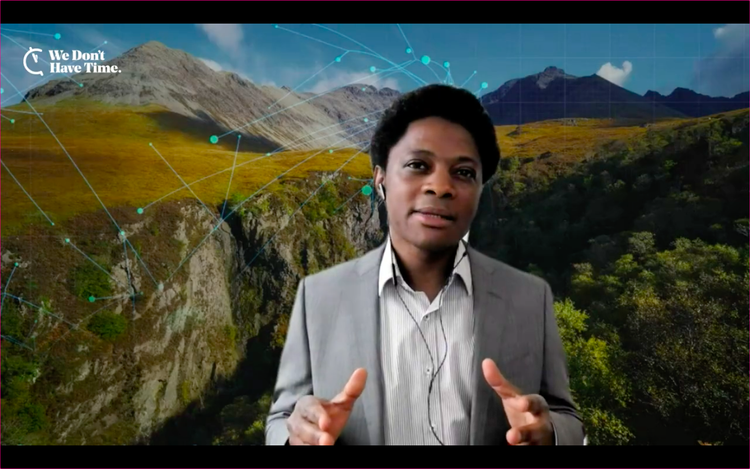
When Lewis Akenji, managing director of the Hot or Cool Institute and member of the Earth4All Transformational Economics Commission was asked “What will have to give up to achieve this transformation, and how will it look like across the world. What will we gain?”, he replied:
“Instead of asking what we will have to give up, I prefer the question “What can we do to make our lives better than they are today?”.
Through the Earth4All project we decided to go back to the root of the issue: why are we consuming above the capacity of the Earth to sustain our ways of living?
Through changes in lifestyles and consumption, we can reduce by 40 to 70% our greenhouse gases emissions before 2050. There is huge potential sitting there. Our current lifestyles’ footprint, in high-income countries, are at about 4.6 tones per person per year. In order to meet the Paris Agreement’s target, or reap the benefits of the 70% greenhouse gases reduction, we need to drop to about 0.7 tonnes per person per year. That is radical, and is the reason why Earth4All is not only talking about transformation but also about turnarounds.
One element we are looking at closely is that if we do not address the social tensions that are rising in society today, we may even face social collapse before we have climate collapse. We see a lot of eco-anxiety, inequalities between genders, Northern and Southern countries, the rich and the poor, across generations. One of the recommendations of the Earth4All project is that we should cap wealth in society in a way that the 10% of the richest of a country would not own more than 40% of the national income of that country.
Governments must edit out the high-impact areas in society – such as the use of fossil fuel, second homes, loyalty programmes for frequent flyers – and reward regenerative agriculture, plant-based diets, and other ways of living that are aligned with our sustainability targets. Governments must also go beyond GDP-only. GDP is a brutal extractive and colonial measure of what it means to be a developed country. We need to move away from this and towards 21st century measures and indicators, that reflect what we want to value as a society. “
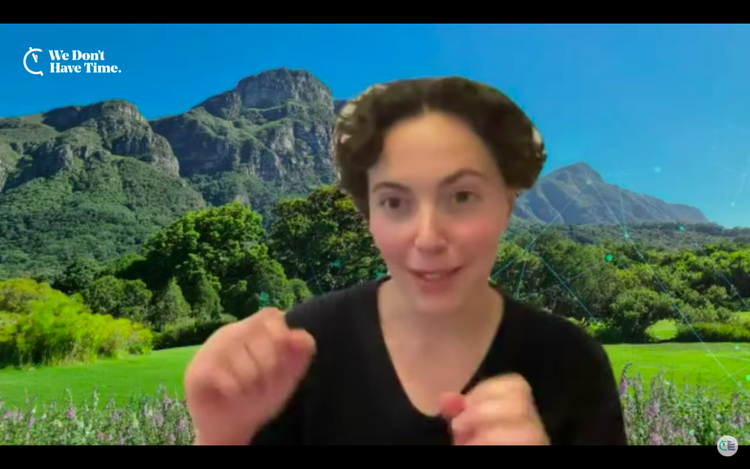
As Campaign and Participation Adviser of Earth4All, I had the chance to explain how the science and knowledge of the initiative would be taken forward to accelerate transition.
Watch Lena Belly-Le Guilloux’s speech
In a few weeks, at Stockholm+50 we will demand an ambitious outcome document. After that, there will be G20, the UNFCCC COP27, and next year the Summit for the Future, organized by the UN. We will bring our findings and recommendations – and hope others will help us in bringing them too. We will ask to look at the system as a whole. We can’t solve the climate crisis without solving the poverty and inequality crisis, and vice versa.
To do that, we need:
· to reform the international financial system and trade regulations so that low-income countries can combat poverty and achieve prosperity, without carbon-intensive development paths;
· fiscal measures that unlock a political space to deliver the five turnarounds, including universal basic dividend schemes financed not by wages of the working majority, but by the private sector’s use of natural and social commons;
· governments to support a societal debate on economic systems change, for instance through binding citizen assemblies to explore the best ways to shift to wellbeing economies in ways that are adapted to the specific needs of local populations.
We know we are far from alone in calling for a new economic system. A growing movement of policy-makers, economists, citizens, communities, organizations, and movements are calling for a major upgrade of our economic system. Earth4All will support this movement, trying to amplify existing initiatives. It is an open campaign that everybody can join.
In September 2022, we will publish the book and the model. Everybody will be able to use them to advocate for change, with their own municipality, their own government. We feel strongly that we need everybody to demand change, to start conversations about the need to upgrade our economic systems, at any level. Any policy-maker, organisation or individual who believes in this urgent need, and wants to discuss how a better future will look like, will be able to join Earth4All, use material, participate in joint actions, share and connect. To get involved, follow our social media channels, or our website. You will see how to participate and stay in touch.

